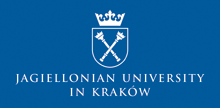Speaker
Description
Studies with kaonic atoms offer the unique opportunity to perform experiments at vanishing relative energies between the antikaon and the nucleon, because their atomic binding energies are in the keV range, far below the lowest energies of extracted beams for scattering experiments. Specially, kaonic hydrogen atoms offer an ideal framework to study strong-interaction processes, which will give access to the basic low-energy parameters, like the antikaon-nucleon scattering lengths.
The antikaon hydrogen reaction is well understood from the recent results obtained from KpX at KEK, DEAR and finally from SIDDHARTA at DAFNE, along with theoretical calculations based on these results.
Although the importance of antikaon deuterium atom X-ray spectroscopy has been well recognized, no experimental results have yet been obtained due to the difficulty of the X-ray measurement. The kaonic deuterium measurement is indeed needed to disentangle the isoscalar and isovector complex scattering length, shedding light on the antikaon-neutron interaction, long-awaited by theory.
The planned antikaon deuterium experiment at the Japan Proton Accelerator Research Complex (J-PARC, Japan) will be described, including first test measurements at J-PARC with the newly developed X-ray detector system.

